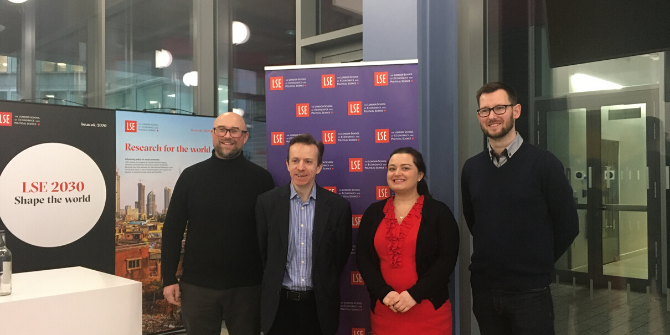The group exercise is a common element in many assessment centres and something that you are likely to become quite familiar with as you navigate your path into employment. Whether you’re taking part in a group discussion, team case study, role play or a ‘design and build’ team game, employers are interested in observing how you interact with others. They’ll be hoping to see you demonstrate some of the core competencies necessary for the role you’re applying for: presentation and communications skills, leadership, ability to manage time, relationship building, influencing, and negotiation. They’ll be checking your capacity to work productively with others and will be impressed by people who engage enthusiastically with the task in hand and just looks as though they are enjoying taking part! There are of course lots of things you can do to prepare beforehand, and the following tips will help ensure a successful group exercise on the day:
1. Manage your time effectively
This is something that groups often find particularly challenging, so it’s definitely an area you can make an impact. Ensure that one of the team takes responsibility for monitoring the available time, and will keep a close eye on when you will need to complete different parts of the work. Remember that part-way through the exercise the assessors may well change what’s expected, introduce a new element or reduce the time available, so be prepared to be flexible and re-negotiate the plan with the group. If you have assumed responsibility for time-keeping, give regular updates and ask your colleagues to reconfirm how they would prefer to prioritise the remaining time.
2. Speak up
It goes without saying that if you don’t say anything you can’t be assessed! Your contribution can be a combination of expressing your own ideas or suggestions, confirming your understanding of what others are saying, acknowledging their ideas and potentially developing them, as well as succinctly summarising progress made so far. If you tend to speak quietly, make an effort to speak louder than usual so that your contributions aren’t missed by your assessor.
3. Collaborate with your group members
Remember you’re generally not in competition with the other candidates. The assessors are judging you against set criteria rather than comparing you all, and will often hope to offer positions to several of those taking part in the assessment centre. Show how you can collaborate with other participants and that you are prepared to compromise for the greater good rather than defending your own ideas at all costs.
4. Recognise others’ contributions
It’s important to show your team you’ve listened carefully and understood what they’ve said, even when you disagree. Avoid interrupting or dismissing their point outright! Useful phrases to keep in mind include “you’re making a valid point”, “I understand what you’re saying” and “there is certainly merit in that approach”, “that’s an interesting suggestion”.
You can reinforce your agreement and add your view with these phrases “you’re (absolutely) right”, “I (completely/totally) agree”, “what you’re saying is correct/right/true”, “another benefit of this might be…”, “this would also be good because…”
5. Encourage quieter members
Monitor what’s going on around you, and make a point of encouraging anyone who has not yet spoken or seems less confident speaking up.
6. Don’t dominate
You may notice that you have naturally taken the lead in facilitating the group. Remember that an effective leader will always be interested in ensuring that everyone’s contribution is taking into account and that it is important to recognise their good ideas.
7. Be positive
Make sure your body language is positive, your posture open, avoiding gestures that appear defensive, such as crossed arms. If things don’t go your way remain positive, keep your energy and enthusiasm levels up throughout the task. You certainly don’t want to look bored or as though you’d rather be somewhere else!
8. Research
Don’t forget to do the research as you would for any other interview. Ensure you understand the organisation, their products, stakeholders, who their competitors are and what’s happening in the sector. If, as is likely, the group exercise is closely aligned to the organisation’s business you will already have some ideas and a head-start! Feel free to ask for clarification on what will be expected of you in the exercise and if there is anything in particular you should do to prepare.
9. Think commercially
For certain roles it will make sense to have some basic business concepts ready to help you to analyse the task. Think revenue, margins, profit, competitors, clients/customers, fixed and variable costs, market share, growth, marketing and market size.
10. Practise
Seize any opportunity you can to work as part of a team on academic projects and as part of extra-curricular activities. We also offer mock assessment centres and seminars on group exercises which will give you the opportunity to practise!





